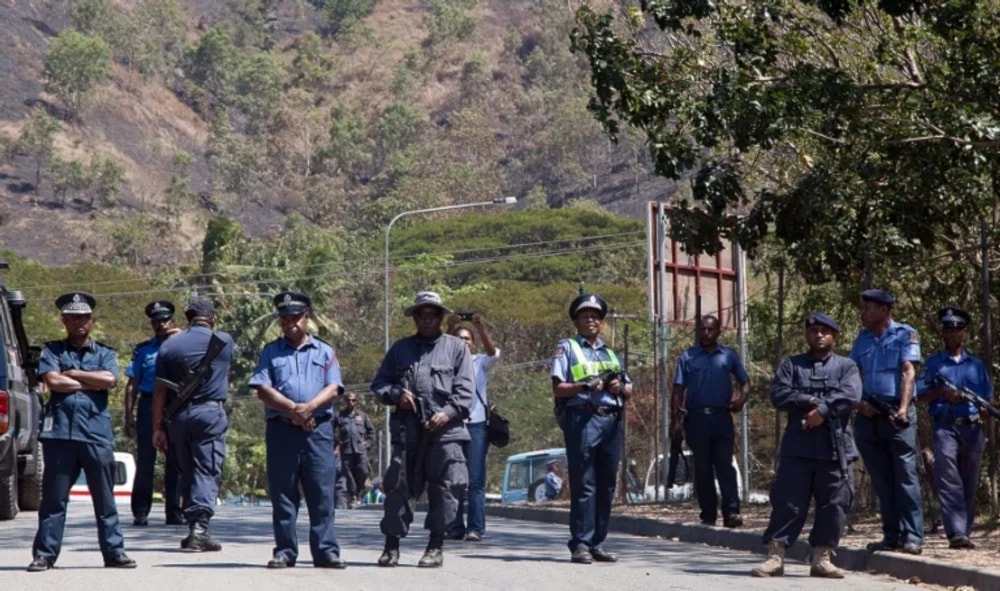Papua New Guinea, Australia sign new police agreement
Under the newly disclosed agreement, Canberra will allocate approximately US$25 million for the renovation and expansion of police barracks and housing.
-

Papua New Guinea police officers are seen in a file picture at a student march in 2013. (AFP)
Australia has committed additional millions of dollars to bolster the police force in Papua New Guinea through a four-year agreement, aiming to reinforce a longstanding security alliance in response to what the US perceives as a Chinese threat.
Under the newly disclosed agreement, Canberra will allocate approximately US$25 million for the renovation and expansion of police barracks and housing.
The financial commitment reportedly aims to support the struggling police force and reinforce enduring security connections that seem more vulnerable. This declaration follows recent reports that China had reportedly proposed to provide training and equipment to Papua New Guinea's thinly staffed police force, which currently consists of just a few thousand officers in a country with nearly 10 million people.
"PNG and Australian police are working more closely today than at any other time in our bilateral history," Papua New Guinea's police commissioner David Manning said, lauding the "traditional bilateral" partnership with Australia.
A flashback
Earlier this month, a police and public sector protest over pay cuts emerged but later developed into intense riots with cases of looting, burning buildings, and attempted break into the Prime Minister's office. Officials later declared the pay cuts an administrative miscalculation.
Prime Minister James Marape then announced a 14-day state of emergency across the country and suspended several governmental officials, including the finance secretary and police officers, but affirmed that this does not indicate "their involvement in matters of concern."
Almost 1,000 police officers were summoned for backup patrolling and peacekeeping duties.
Following the events, Marape has encountered heightened criticism and calls for his resignation. Former PM Peter O’Neill addressed what he considered Papua New Guinea's "darkest day" and referred to Marape saying, “There is no shame in taking responsibility, but it is absolutely shameful to continue knowing you have lost command and control."
Papua New Guinea requested assistance from Australia, whose Defense Minister, Richard Marles, said the country has gained back control with the help of police supervision.
The big picture
In May, Marape announced that the country will sign a new security pact with the US, allowing its troops access to all the nation's ports and airports.
According to Marape, after securing parliamentary approval, the two countries will sign two agreements that will be focused on defense cooperation and maritime surveillance.
Marape argued, "We are elevating to a specific defense cooperation agreement, something that is falling short of a treaty," adding, "We are moving ahead, we are signing with the best military on the face of planet Earth."
The US, in the newly drafted agreements, will have unrestricted access to Papua New Guinea's water, thus securing vital movement in waters near sea routes to Australia and Japan. In return, Marape claimed Papua New Guinea would obtain access to US satellite surveillance.

 3 Min Read
3 Min Read








